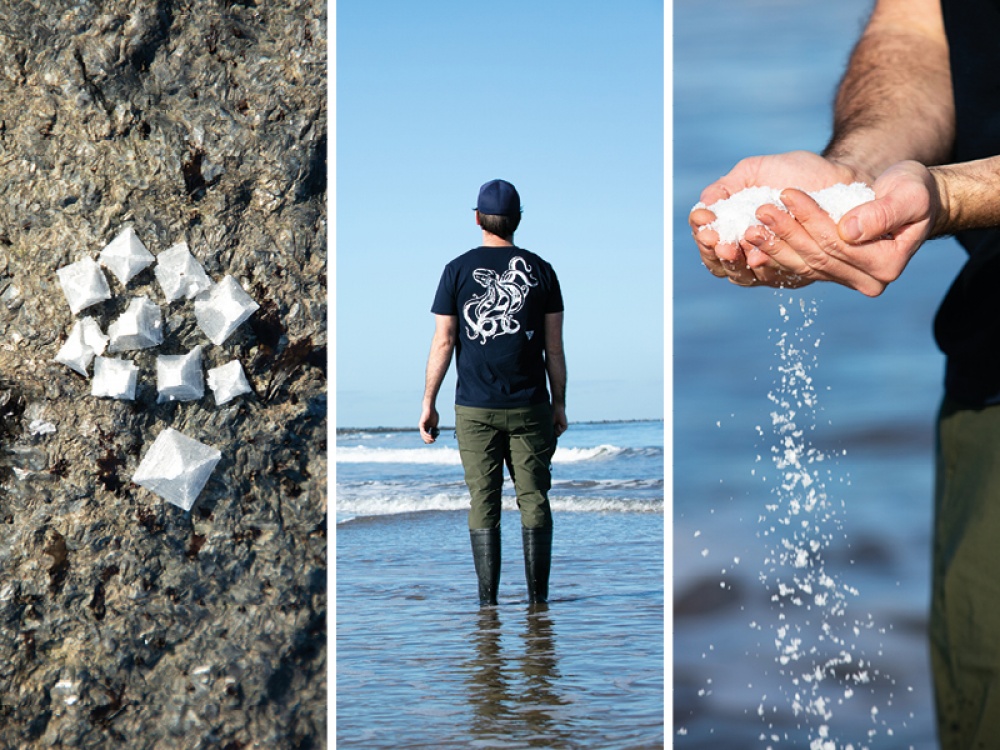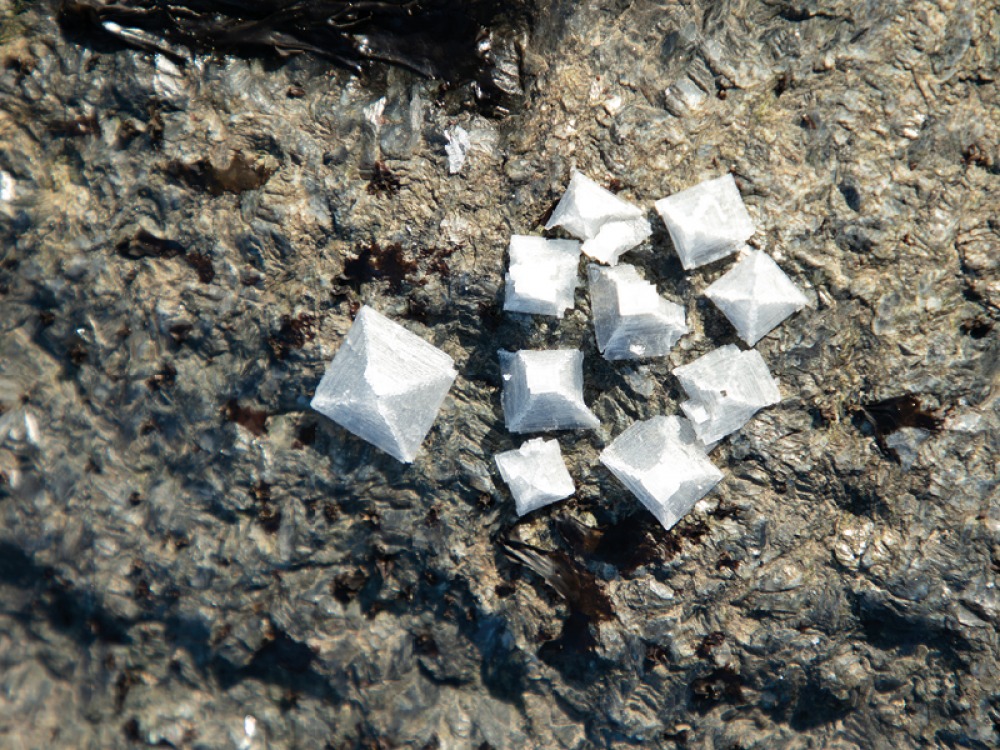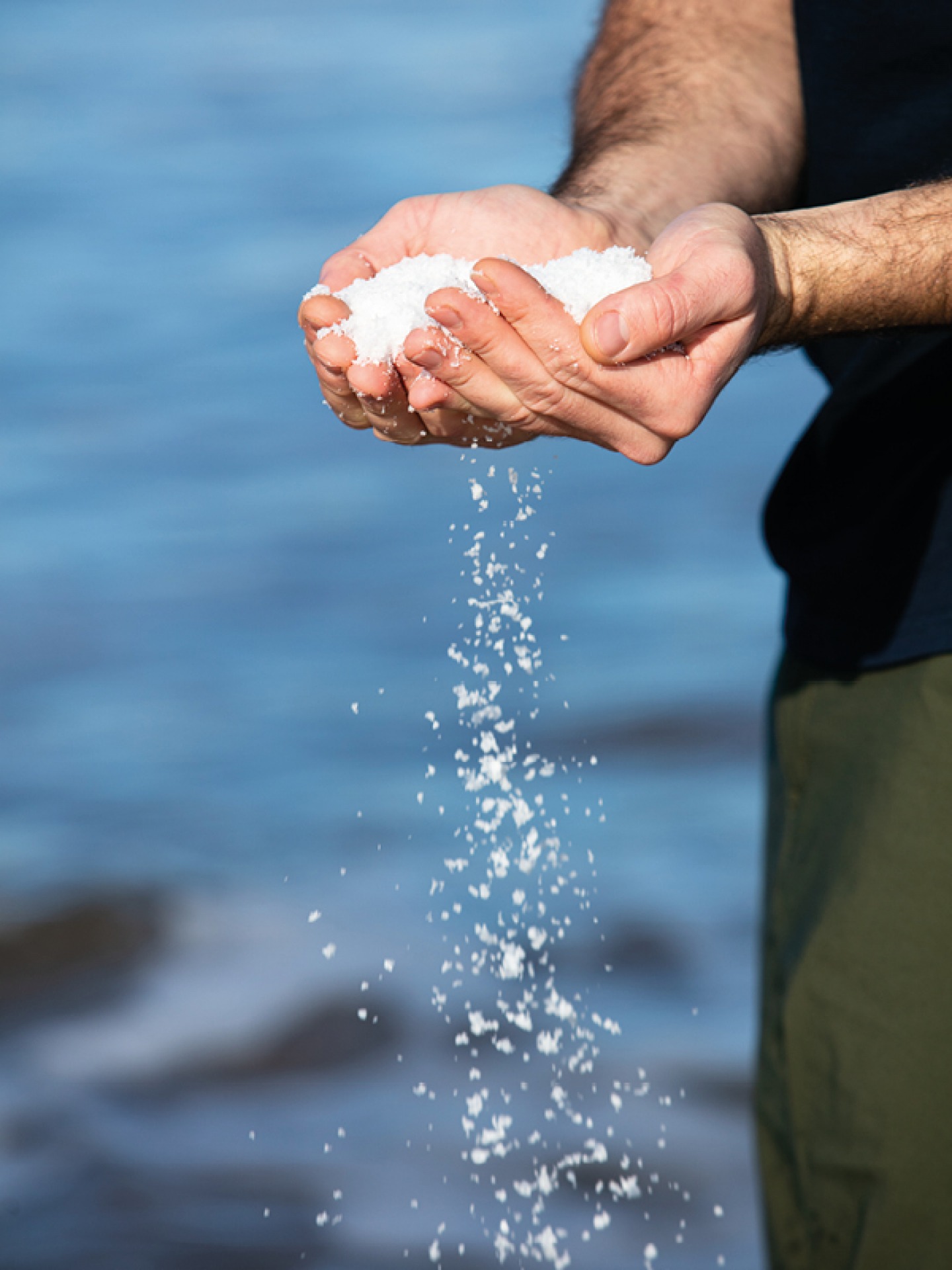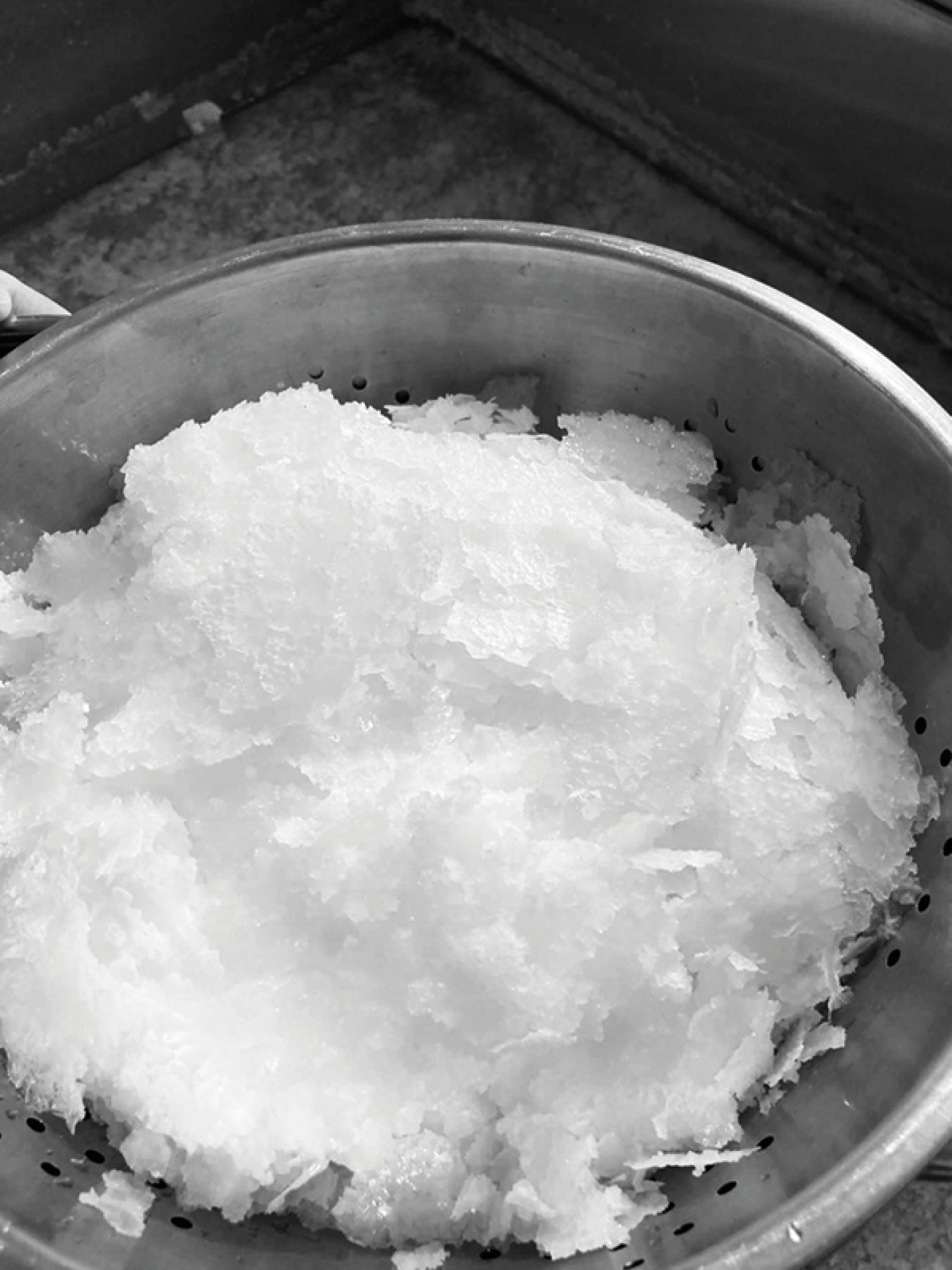How Saltburn's Yorkshire Sea Salt Co. are Bringing Back a 6,000-year-old Tradition

Saltburn's Yorkshire Sea Salt Co. have launched their pure, natural, hand-harvested and mineral rich sea salt. We get a taste of the business as we catch up with founder Richard Devany

Richard started looking into sea salt production specifically on the North East coast and discovered there were no local salt houses. ‘I began researching the process to figure out what was possible and it quickly became apparent that there isn’t an instruction book about how to make sea salt on a commercial level. The process itself is quite simple in that you evaporate sea water, however there isn’t any set equipment to try and do that on a commercial level, it’s all very niche.’
After a year and a half of researching and perfecting the process, Richard launched Yorkshire Sea Salt Co. at the end of last year. ‘At the moment we’re classed as small batch and the whole process can take a week,’ he says. Pure sea salt flakes are hand-harvested from the coast of Saltburn by triple filtering sea water right down to five microns. ‘To put that into perspective, a hair’s width is 100 microns, so we really filter out any sand and shell deposit before putting the water through a UV filtration system which kills off anything which is left, if anything,’ he explains.
Read More: Discover How Yorkshire-Based Salt + Steam are Striving for Sustainability

The sea water is then evaporated by boiling it down, leaving a concentrated brine solution behind. ‘The sea waters around the UK are typically about three and a half percent salinity, but what we’re finding up and down the North East coast is around 3.8 to 3.9 percent. That’s obviously good for us because we get a better yield,’ he explains. Creating a brine increases the percentage of the salt, taking it up to 20 percent salinity. ‘From there we heat the brine from above which allows salt crystals to form on the surface of the water. It’s quite a beautiful process to watch because they form in perfect pyramid shapes and it’s just like mother nature doing her thing.
‘Once the salt gets too heavy the crystals start falling and then we begin to harvest,’ Richard explains. The team scoop the salt out, drain it and then dry it really slowly. ‘The drying is a really important part of the process because it can affect the flavour and the moisture content at the end,’ he adds.
There are other salt houses in the UK, but Richard believes the water from our North Eastern coastline makes all the difference. ‘Sea salt is affected by the water it’s taken from and with our sea salt you’re getting 60 different trace minerals – that’s what makes it better for you than table salt,’ he says. ‘Table salt, which is made by firing high-pressure into bedrock deposits underground, gives you pure sodium chloride which needs iodine adding. Our salt, which has the 60 different minerals, is better for your health as you can use less of it but get the same amount of flavour.’


Yorkshire Sea Salt Co. have found their salt is much punchier than southern sea salt. ‘We were really pleased and a bit surprised at the initial uptake and interest in our product. We have a long way to go and a lot of hurdles to get over but the initial response has been great,’ says Richard. Approaching local cafés, delis and farm shops has been the main focus for the team, as well as raising awareness of the new salt. ‘Lots of locals are contacting us asking to use our salt in their products – that might be a baker making bread or a larger manufacturer making products for supermarkets, and we’ve had some wholesalers contacting us too. We’re steadily starting to build up local stockists as well as selling the sea salt on our website,’ he adds.
Not only are Yorkshire Sea Salt Co. focusing on supporting local business, they are also championing ethical and environmental approaches to the industry. ‘We decided to make our initial pledge towards being plastic-free by making sure our packaging is 100 percent plant-based. It took forever to work out what would work for us, especially with sea salt being corrosive, but we didn’t want to go down the glass route because glass knocks onto your CO2 impact because it’s heavy and transporting it effects the amount of fuel being used,’ Richard explains.
So far Yorkshire Sea Salt Co. have launched their pure hand-harvested flakes in refillable, plastic-free 100 gram bags, but Richard is already working on his next line of products. ‘The ultimate aim is to expand the product range and we’re already in experiments to produce flavoured salts and we’re hoping to bring out at least a couple this year,’ he says. ‘We want to become a known brand nationwide and build upon what we’ve started.’







